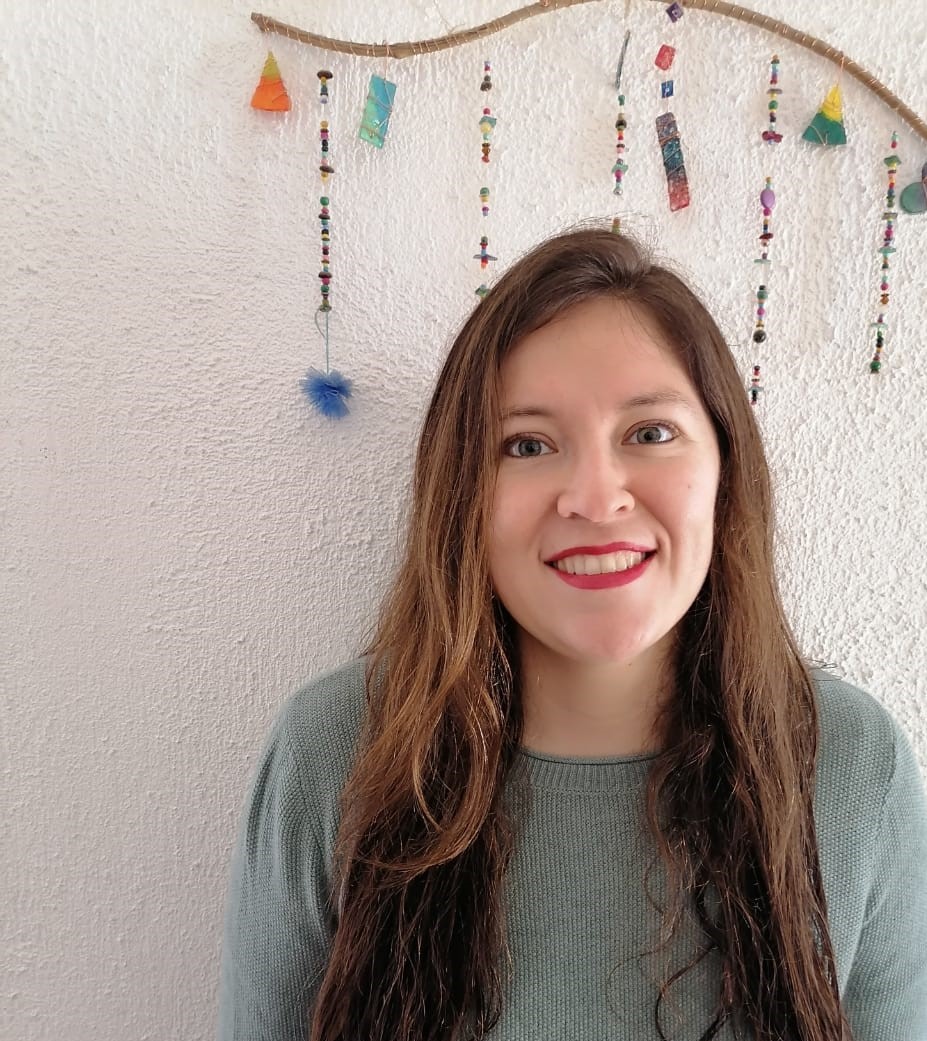

Carla Tapia is a PhD candidate in Griffith's School of Education and Professional Studies. She has worked teaching Spanish and English as a second language in Chile and Australia at different levels of education. She completed a Master of education in Early childhood with a research project about teachers' challenges in intercultural classrooms. Her current research project is about exploring the identity of teacher activists in Chile.
The presented poster “The teacher protesting is also educating” explored how social activism influences the development of Chilean teachers' professional identity. The project considers the shapes activism takes, how activism has changed over time and whether teacher activism shapes teaching.
This research project uses Bernstein’s sociological corpus as a theoretical framework, particularly the concepts of pedagogic discourse, pedagogic rights and pedagogic devices. (Bernstein, 2000). This frame focuses attention on the inclusion, participation and enhancement of teachers and students within the educational system and society. I argue that the rights that are reclaimed on the streets end up recontextualised in classrooms and vice versa - what is seen (and unseen) in the classrooms is recontextualised in the streets. Bernstein’s ideas are complemented by Latin American decolonisation ideas to explore the ongoing repressive discourses that are reproduced in classrooms and how these frame teachers’ practices and identity.
Yarning and testimonios were used to produce data. Yarning is an open conversation about a topic, where participants talk freely in a safe space (Bargallie, 2020). In this case, yarning involved using a photo representing the teachers’ activist identity as a conversational focal point. The written or oral testimonios explored the teachers' identity inside the classroom (Saavedra & Nymark, 2008). Both yarning and testimonios were conducted via Teams, Meet, and Facebook messenger, as COVID19 restricted the data production phases.
Purposive and snowball sampling methods were used to recruit teacher participants. The participants had all worked in a school in the last two years and had engaged in public activism. The gender balance between participants reflected the Chilean teaching profession as 25% of participants were males and 75% were females.
The outcomes of this project will offer suggestions for implementing policies supporting the pedagogic rights of teachers and students. They will also offer a clearer picture of why and how teachers participate in activism, and the extent to which their activism influences educational issues.
You can view Carla's poster here.
- Bargallie, D. (2020). Unmasking the racial contract: Indigenous voices on racism in the australian public service. Aboriginal Studies Press. ebookcentral-proquest-com.libraryproxy.griffith.edu.au/lib/griffith/reader.action
- Bernstein, B. (2000). Pedagogy, symbolic control, and identity: Theory, research, critique, revised edition (Revised ed.). Rowman & Littlefield Publishers.
- Saavedra, C., & Nymark, E. (2008). Borderland-Mestizaje feminism: The new tribalism. In N. Denzin, Y. Lincoln, & L. T. Smith (Eds.), Handbook of Critical and Indigenous Methodologies (pp. 255-276). Sage. doi.org/10.4135/9781483385686